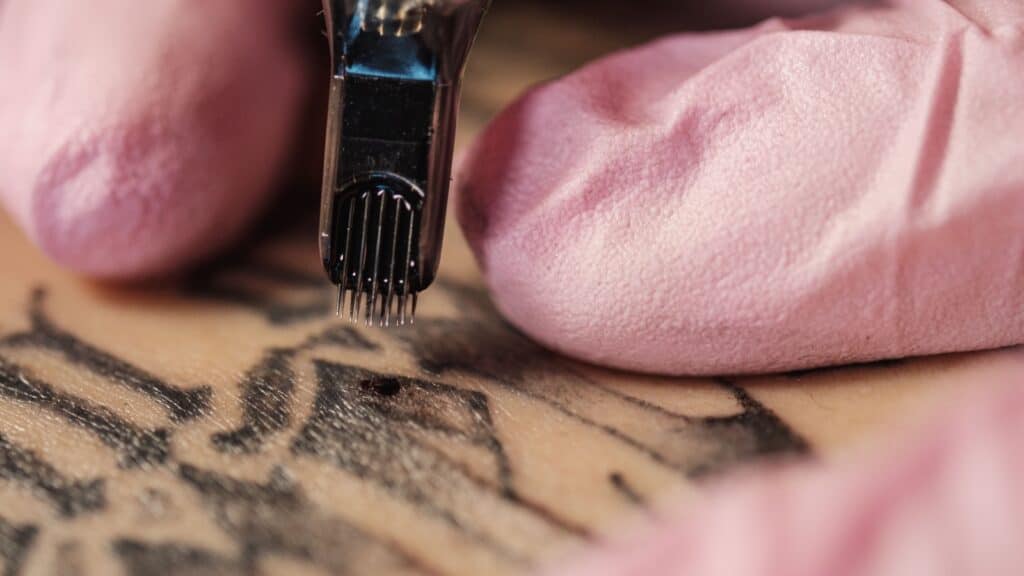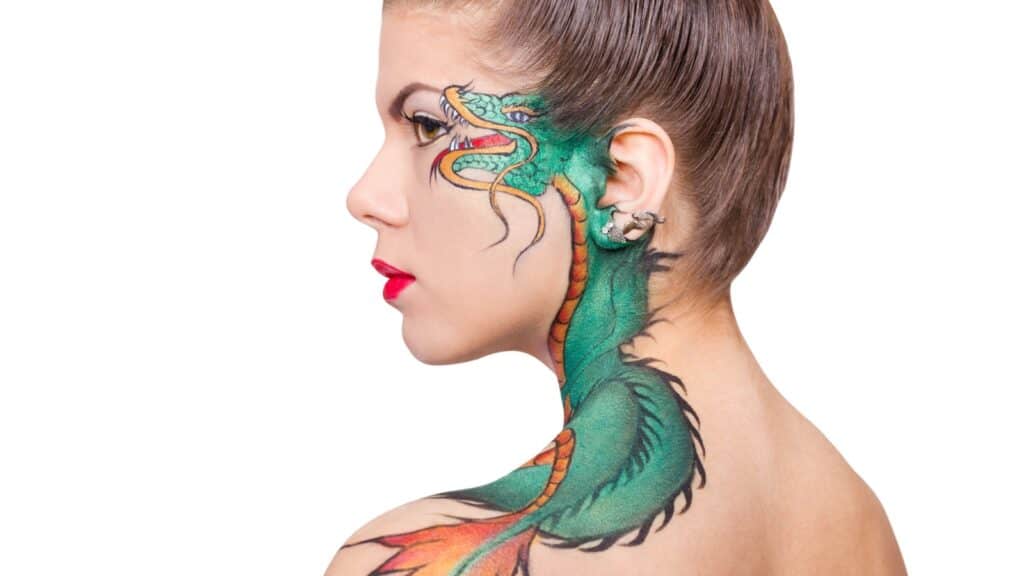Tattoo Trends: Why More People Are Experiencing Regret
Tattoos have long been a form of self-expression, with their popularity surging in recent decades. What was once a niche practice has now become mainstream, with people from all walks of life getting inked. However, alongside this rise in popularity, there has been a noticeable increase in the number of people experiencing tattoo regret, which is not always a quick and easy process, often requiring repeat visits to the medical professional addressing the issue. Let’s explore this new trend and its contributing factors.
The Popularity of Tattoos

Before delving into tattoo regret, it’s important to understand the widespread appeal of tattoos. According to a 2019 survey by Ipsos, nearly 30% of Americans have at least one tattoo, up from 21% in 2012 . This growth can be attributed to several factors, including changing social norms, the influence of celebrities, and the increased visibility of tattoos in media and popular culture.
Tattoo Regret: An Emerging Trend

Despite the rising popularity of tattoos, an increasing number of individuals report regretting their decision to get inked. A 2021 survey by the Harris Poll found that nearly 23% of tattooed Americans regretted at least one of their tattoos. The reasons for this regret vary widely, encompassing poor design choices, changes in personal beliefs or lifestyles, and professional considerations.
Age and Tattoo Regret

One of the most intriguing aspects of tattoo regret is the age distribution of those who experience it. Research indicates that younger individuals are more likely to regret their tattoos than older adults. This trend can be attributed to several factors:
- Impulsivity in Youth: Younger people are often more impulsive and may make hasty decisions without fully considering the long-term implications. Tattoos acquired on a whim during adolescence or early adulthood are more likely to be regretted later in life.
- Life Changes: As people age, their tastes, beliefs, and circumstances evolve. A tattoo that seemed meaningful or stylish at age 20 might not hold the same significance at age 40. This is particularly true for tattoos that are related to transient phases or relationships.
- Professional Concerns: Career aspirations and professional environments can significantly influence tattoo regret. While tattoos have become more accepted in many workplaces, certain industries still maintain conservative views. A Forbes article mentions the legal professions, in particular. Older individuals, who are often more established in their careers, may find their tattoos becoming a hindrance.
Hygiene & Medical Issues

In some cases, tattoos done in unclean environments can lead to infections and poor healing, resulting in a subpar final result. This would lead to correction, or removal – as well as necessary medical intervention.
Some individuals may experience allergic reactions to tattoo ink, leading to chronic skin issues and dissatisfaction.
Pre-existing or developing skin conditions can affect the appearance of tattoos and lead to regret.
The Role Of Social Media

Social media plays a crucial role in both the proliferation of tattoos and the subsequent regret. Platforms like Instagram and Pinterest showcase a plethora of tattoo designs, often inspiring individuals to get inked. However, the same platforms can also contribute to regret as trends change and what was once fashionable becomes outdated.
Famously Changing Their Minds

Several famous people and celebrities have had tattoos removed.
- Megan Fox had a portrait of Marilyn Monroe on her forearm, which she decided to remove.
- Supermodel Heidi Klum had her ex-husband Seal’s name tattooed on her arm, along with a design featuring stars. Following their divorce, she began the process of having it removed.
- Khloé Kardashian had a “tramp stamp” tattoo of a cross and angel wings with the word “Daddy” in honor of her late father. She decided to remove it, citing it as a youthful mistake.
- Actor Mark Wahlberg had several tattoos removed, including designs on his upper body and arms. He underwent laser treatments and has spoken about the lengthy and painful process.
- Eva Longoria had three tattoos removed following her divorce from Tony Parker. These included his jersey number on her neck, their wedding date on her wrist, and his initials in an intimate area.
- Pharrell Williams, the musician and producer, opted for a more unconventional method of tattoo removal known as skin grafting. He decided to remove multiple tattoos that he felt no longer suited his image.
- Kelly Osbourne has had several tattoos removed, including a keyboard on her arm and a pair of wings on her back. She has spoken about regretting many of her tattoos and undergoing laser removal.
- While Justin Bieber still has many tattoos, he has removed some as well. He started the process of removing a small tattoo of his ex-girlfriend Selena Gomez from his wrist.
Personal Stories and Experiences

Understanding the personal experiences of those who regret their tattoos can provide valuable insights. Many individuals share their stories online, often highlighting common themes such as:
- Rushed Decisions: Many people who regret their tattoos mention making the decision impulsively or under the influence of peers.
- Poor Execution: Regret can also stem from the quality of the tattoo itself. A poorly executed design or subpar artistry can lead to dissatisfaction.
- Changing Personal Beliefs: As individuals grow and their beliefs or values change, tattoos that once represented significant aspects of their identity may no longer align with who they have become.
- Negative Associations: Tattoos that were once positive symbols can become associated with negative memories or experiences, leading to regret.
- Peer Pressure: Tattoos done to fit in with a group or due to peer pressure might not hold personal significance, leading to regret over time. Like, a bunch of drunk friends deciding to get matching tattoos.
Relationship Changes

Tattoos that symbolize relationships can become sources of regret if those relationships change. Like the famous case of Johnny Depp getting Winona Ryder’s name tattooed, only to regretting it post breakup (he had his changed).
- Breakups and Divorces: Names, initials, or symbols representing a romantic partner can become painful reminders after a breakup or divorce.
- Friendships: Tattoos done to commemorate friendships can become regrettable if those friendships deteriorate over time.
Cultural Shifts

Tattoos that were once socially or culturally significant might lose their relevance or become viewed negatively as societal norms evolve.
Does Tattoo Removal Work?

Research your practitioner to make sure that they are using the latest technology and have experience. Some tattoos are easier to remove than others. Not all tattoos can be completely removed, and some will require a lengthy, and expensive, process.
Talk to Others

Before getting a tattoo, speak with others who decided upon removal. Why did they get their tattoo initially? How did they come to the decision to remove it? What was the removal process like?
Advances in Tattoo Removal

The increasing trend of tattoo regret has spurred advancements in tattoo removal technologies. Laser tattoo removal has become more effective and accessible, offering a solution for those looking to erase their regrettable ink. According to the American Society for Aesthetic Plastic Surgery, laser tattoo removal procedures increased by 32% from 2014 to 2018. This growth highlights the demand for solutions to tattoo regret.
Mitigating Tattoo Regret

While tattoo regret is a common issue, there are steps individuals can take to minimize the likelihood of experiencing it:
- Research and Planning: Thorough research and careful planning can help ensure that the tattoo design is meaningful and well-executed. Consulting with experienced tattoo artists and considering the long-term implications of the design are crucial steps.
- Consider Placement: The placement of a tattoo can influence future regret. Choosing locations that are easily concealable can mitigate professional concerns and personal dissatisfaction.
- Temporary Alternatives: For those unsure about committing to a permanent tattoo, temporary alternatives like henna or temporary tattoos can provide a test run.
Speaking of Placement…

Face tattoos, subtle or dramatic, are a commitment that you should be as sure of as possible.
The Takeaway

The trend of tattoo regret highlights the complexities of personal expression through body art. While tattoos can be a powerful form of self-expression, they also carry the potential for future regret, particularly among younger individuals. By understanding the factors that contribute to tattoo regret and taking proactive steps, individuals can make more informed decisions and reduce the likelihood of future dissatisfaction.
As society continues to evolve, so too will the trends and attitudes surrounding tattoos. With ongoing advancements in tattoo removal technology and a growing awareness of the factors leading to regret, individuals can navigate the world of body art with greater confidence and consideration.
Differentiating Between Temporary Dry Spells And Long-Term Issues In Relationships

A dry spell (a noted lack or decrease in emotional and physical intimacy) in a relationship can be a challenging and emotionally draining experience for both partners. It is essential to recognize the signs that a dry spell may be becoming a long-term issue, such as persistent feelings of loneliness, lack of emotional connection, and increased conflict.
READ: Differentiating Between Temporary Dry Spells And Long-Term Issues In Relationships
Join Us

Join us on this empowering journey as we explore, celebrate, and elevate “her story.” The Queen Zone is not just a platform; it’s a community where women from all walks of life can come together, share their experiences, and inspire one another. Welcome to a space where the female experience takes center stage. Sign up for our newsletter so you don’t miss a thing, Queen!







